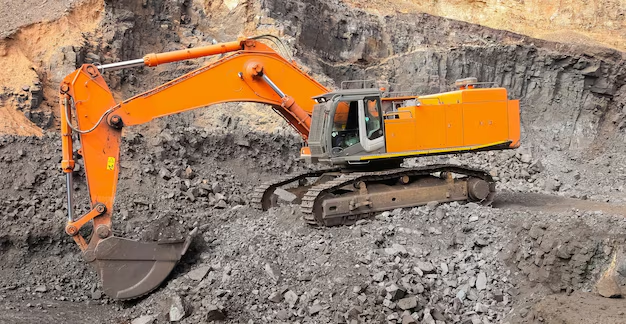You might have seen big machines breaking rocks or tearing down concrete. Ever thought what’s doing that actual hard job? It’s mostly hydraulic breakers. They don’t get a lot of attention, but they do some serious work.
Hydraulic breakers are tools that attach to excavators or other heavy machines. They use hydraulic oil pressure to move a piston inside. That piston hits the tool, which then breaks hard surfaces like rocks, roads, or old buildings.
These tools work behind the scenes in a lot of construction, mining, and demolition projects. They don’t make a big show, but they keep the work moving fast and smooth.

Why are hydraulic breakers preferred in tough jobs?
1. They save time and effort
Hydraulic breakers finish tasks quickly. Breaking rocks by hand or using old-school methods takes a lot of time and work. But with a breaker, one person and one machine can handle the job.
That’s why companies like them. Less time, fewer workers, but the same or even better results.
2. They are very strong
These machines are built to take on hard work. From breaking tough boulders in mines to tearing down old flyovers in the city, they work non-stop.
Also, many hydraulic breakers now come with auto-control systems. These systems adjust the power depending on how tough the material is. This keeps the tool working better for longer.
3. Easy to attach to other machines
Most hydraulic breaker can be fixed to excavators, backhoes, or skid steers. This means you don’t need a separate machine. You just need one excavator and you can switch attachments as needed. Easy and cost-saving.
What kind of projects use hydraulic breakers?
Road Work
Ever been stuck in traffic because the road was being rebuilt? That machine breaking the old road is likely using a hydraulic breaker. It helps workers clear out the damaged part quickly so they can build a better one.
Building Demolition
When old buildings are brought down, breakers are used to crush the concrete. They are strong enough to break walls, beams, and columns.
Mining
In mining areas, rocks have to be broken before they can be moved. Hydraulic breakers are often used there because they don’t need blasting, which can be risky and noisy.
Construction
Sometimes, construction workers hit hard rock while digging foundations. A breaker clears that rock without needing to stop work.
How do operators handle these machines?
Operating a hydraulic breaker does need skill, but it’s not rocket science. A trained machine operator can easily use it. Most machines now come with controls that make the work smoother.
Also, these tools have features like sound dampening. So, they make less noise than older machines. This is useful in city projects where noise can be a problem.
Are these tools long-lasting?
Yes. If you take care of them properly, they can last for years. Regular checks, using the right oil, and not overusing the breaker helps keep it in top shape.
Some companies also give these tools extra protection—like dust covers or special coatings—so they stay clean and strong even in dusty areas.
What should you check before using a hydraulic breaker?
Here are a few things workers usually check before starting the job:
- Is the attachment tight and secure?
- Is the oil level fine?
- Are there any signs of leaks?
- Is the tool tip in good condition?
Also, it’s good to take a short break after running the machine for a while. That keeps it from overheating.
Why are hydraulic breakers considered smart investments?
Even though they’re not cheap, hydraulic breakers are worth the money. They save labour costs, finish work faster, and reduce machine downtime.
Also, because they’re tough, you don’t need to replace them often. Some models also use less fuel, which cuts down running costs.
What’s next for hydraulic breakers?
Many newer models are becoming smarter. Some have sensors to track usage. Some can be controlled more accurately. And many are getting quieter and more fuel-efficient.
Also, companies are making more models that can work in smaller spaces. This is useful for city jobs where there’s not much room to move.
Final thoughts
Hydraulic breakers may not be flashy, but they are super helpful. They help finish heavy work faster, safer, and with less effort. From roads to buildings to mines, they’re always in action—quietly getting the job done.
As you know, with the right use and care, these tools can keep working hard for years. And that’s why they’re trusted by so many in the construction and mining industries.